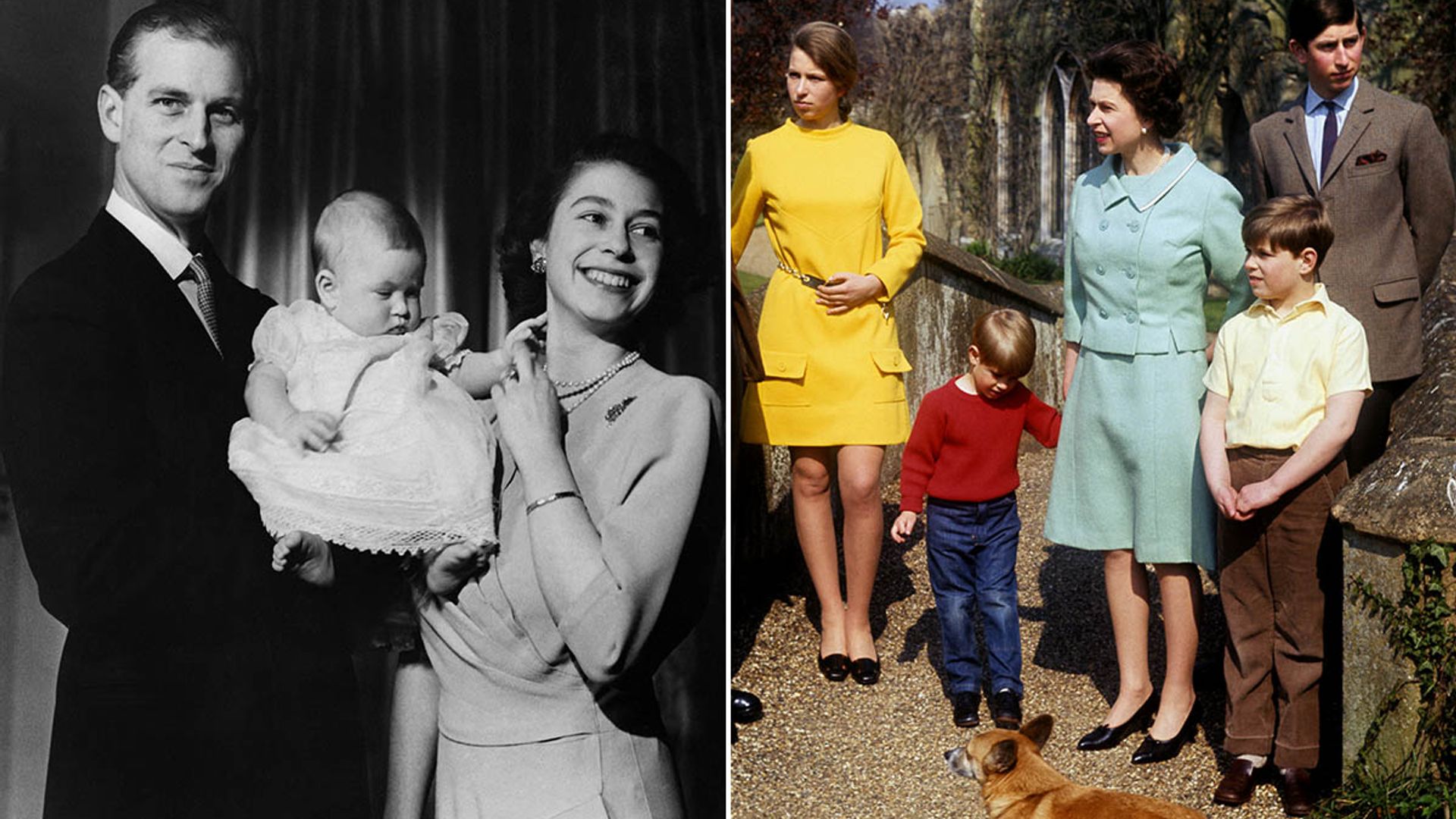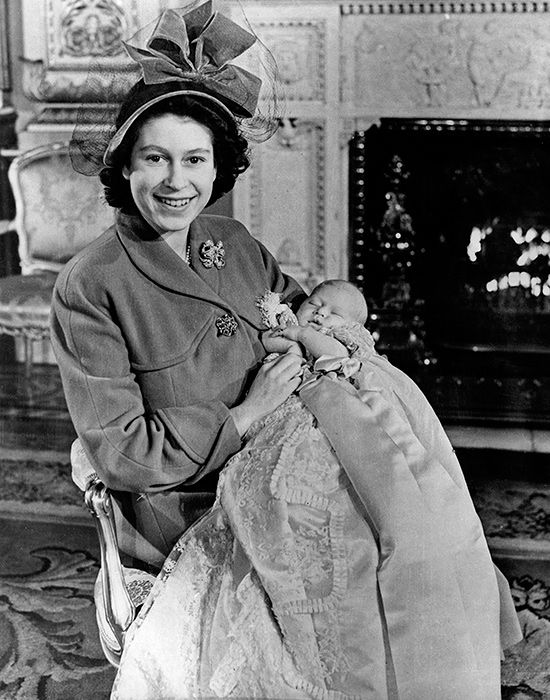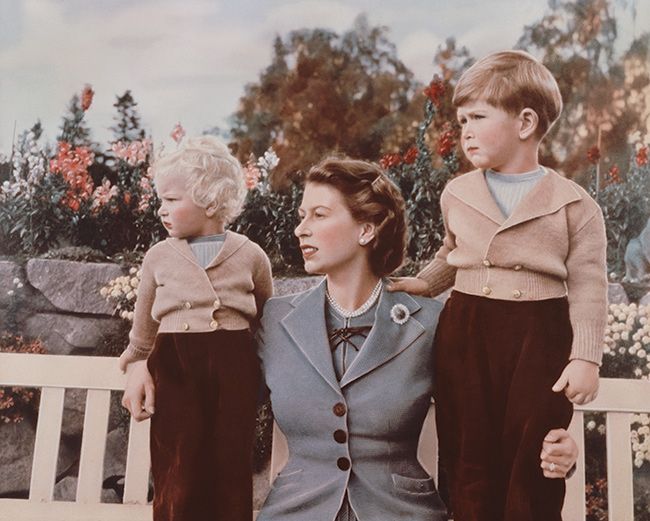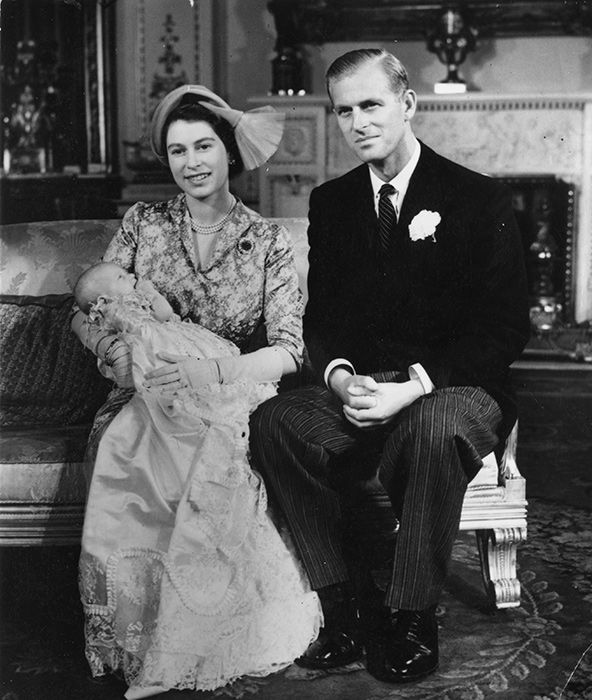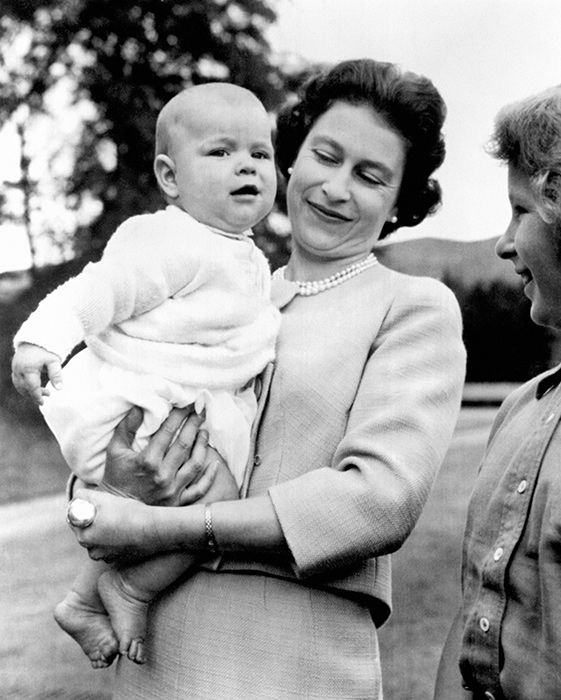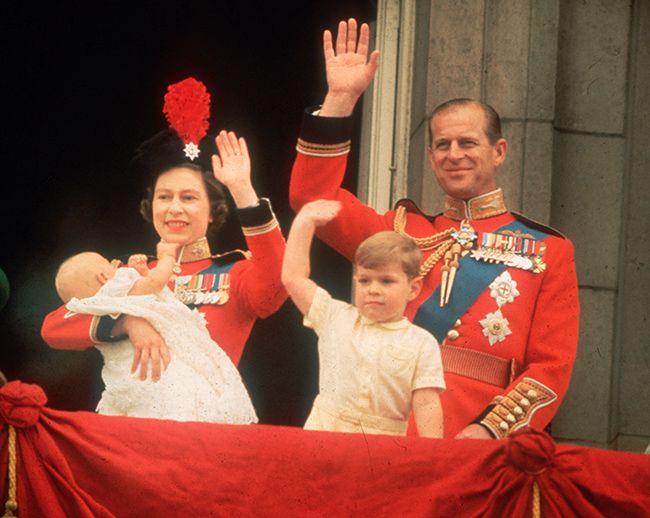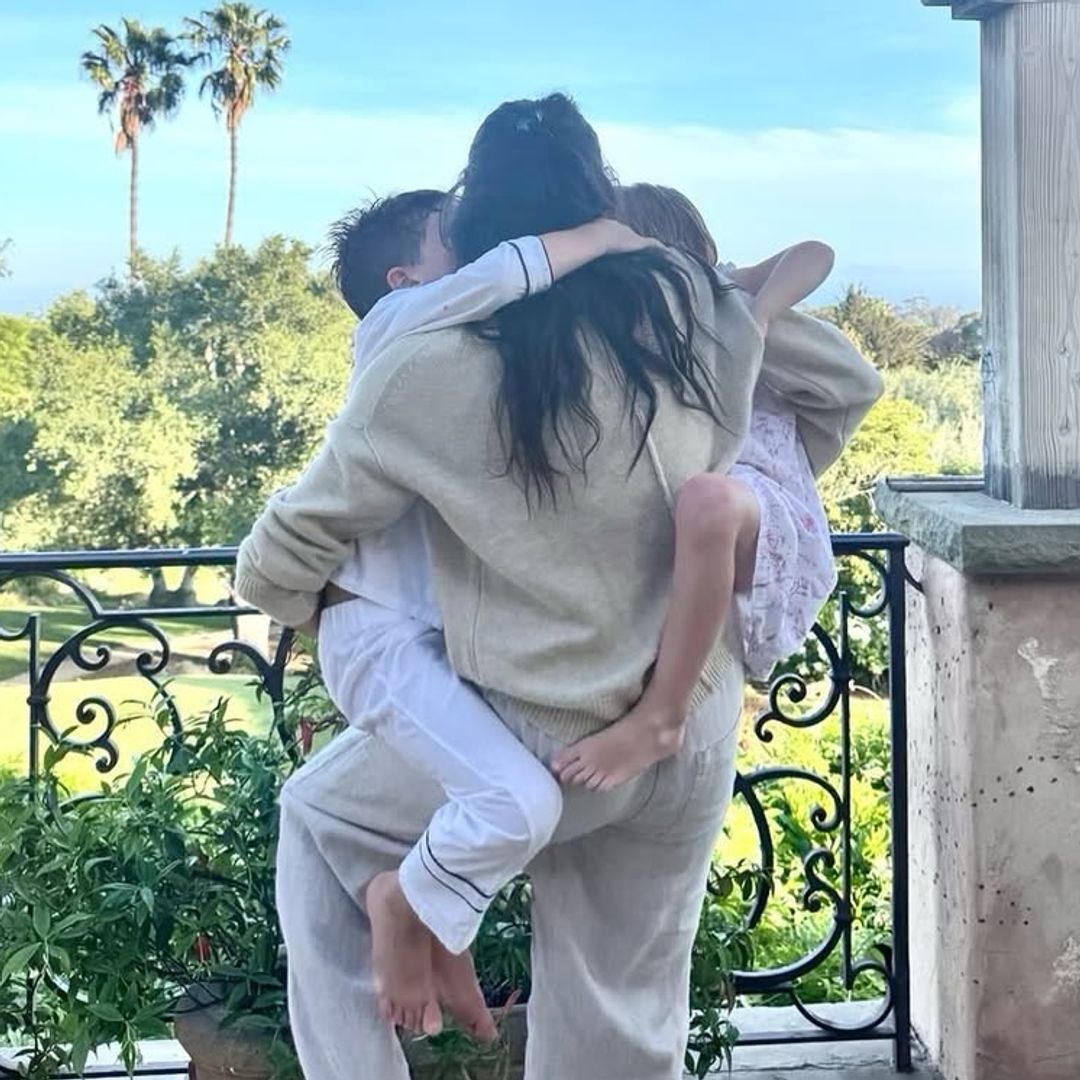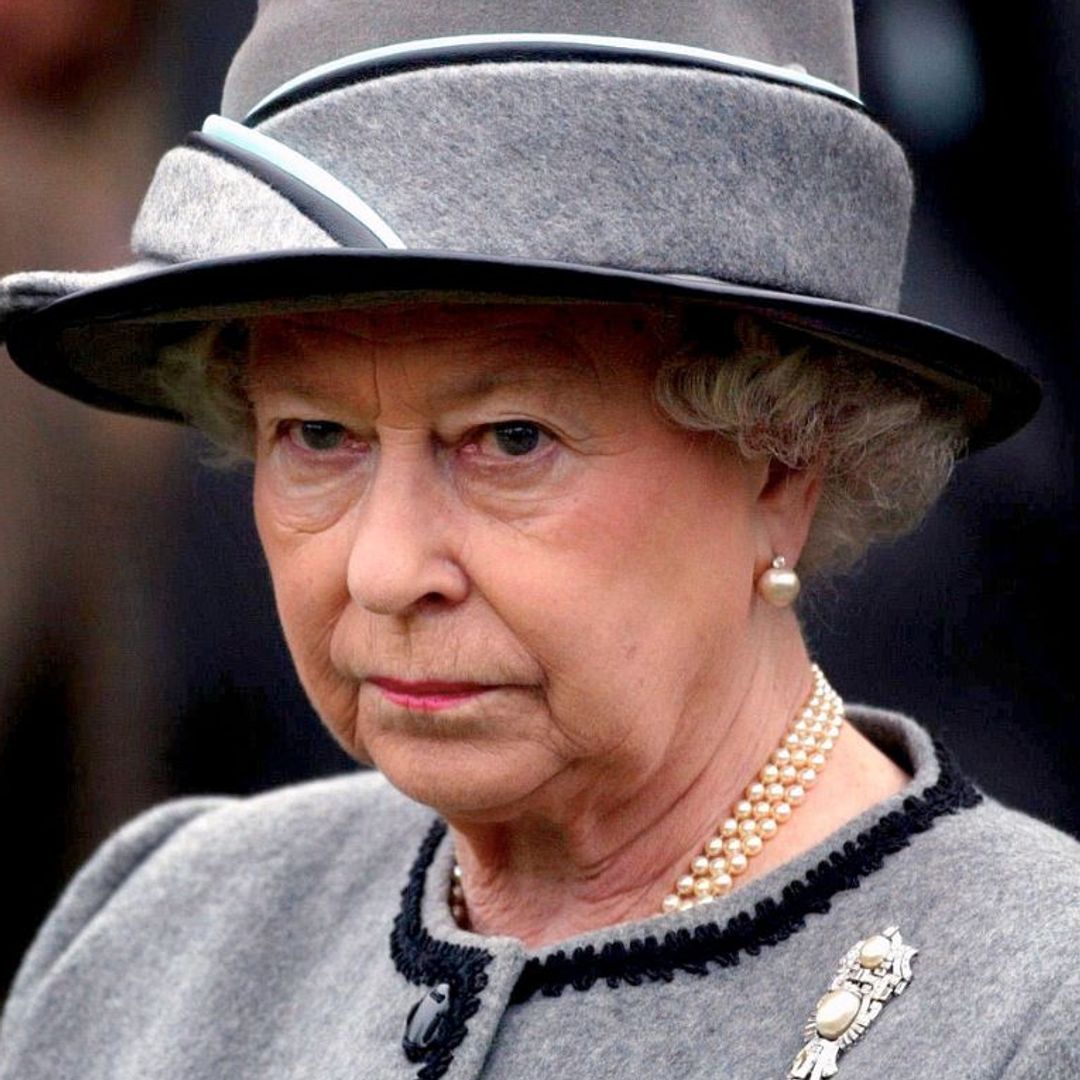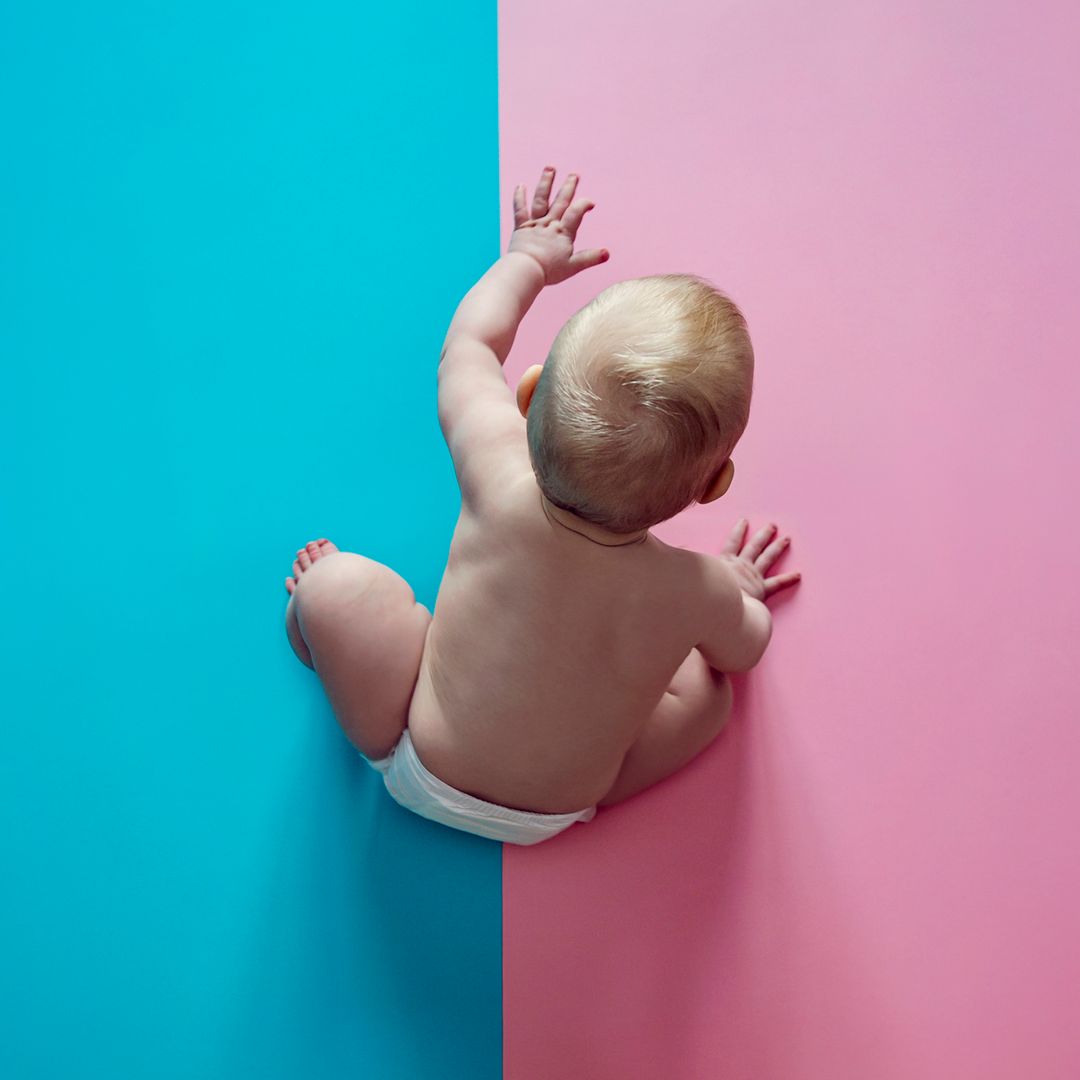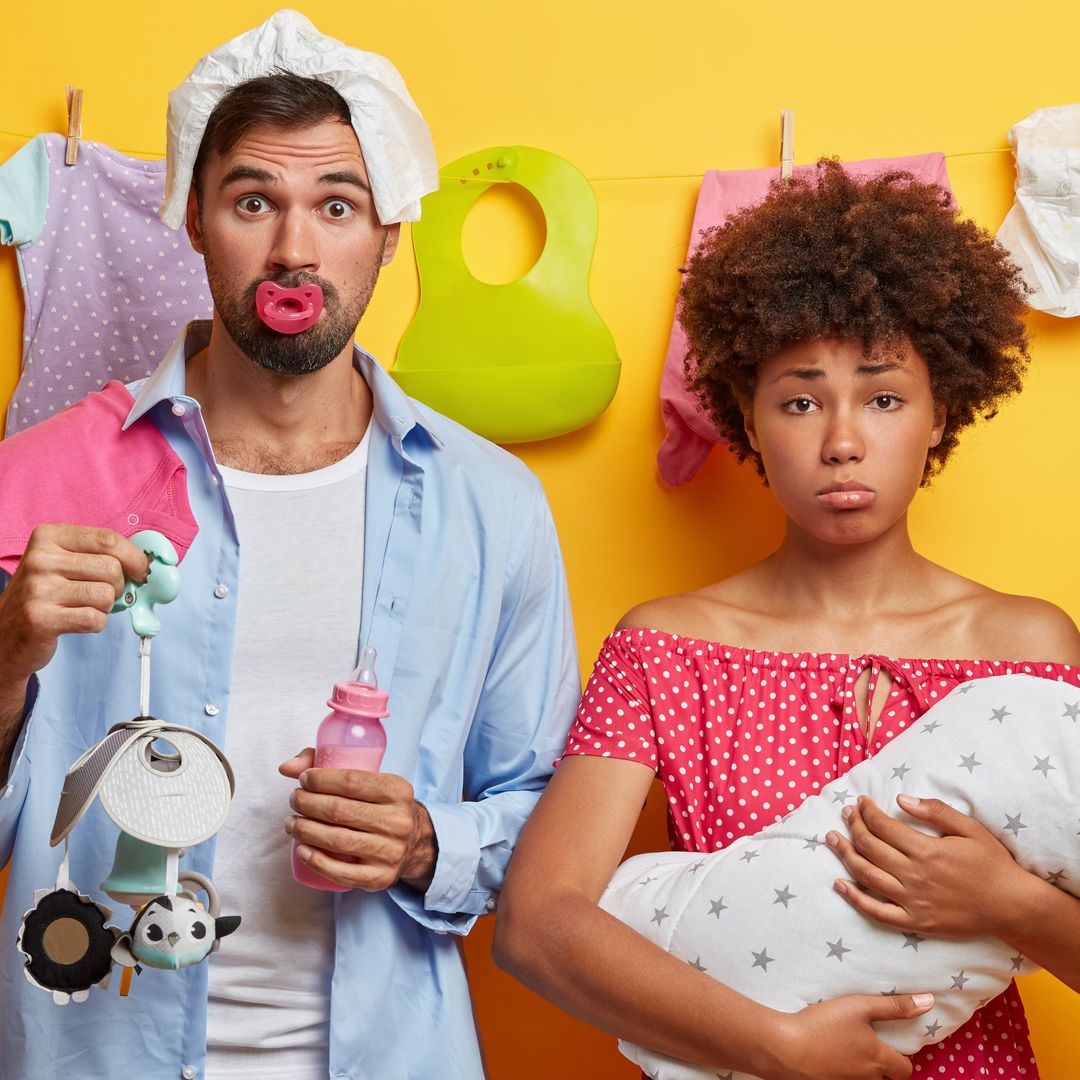We're taking a trip down memory lane following the sad death of Queen Elizabeth II. The monarch, who passed away aged 96 at her Scottish residence Balmoral Castle in Aberdeenshire, was a devoted mother to her four children Princess Anne, Prince Charles, Prince Edward and Prince Andrew. Since her sad passing, the royal siblings have come together during this period of mourning to put on a united front - showing their dedication to their beloved mother.
MORE: The Queen's sweetest family moments in photos as a mother, grandmother and great-grandmother
The Queen was actually quite the trailblazer for royal birthing trends, being the first monarch in British history to deliver a baby without the Home Secretary present. Yes, that used to be an actual requirement at a royal birth! Her Majesty gave birth to all four of her children at home, whereas the Duchess of Cambridge, Meghan Markle, Princess Eugenie and Sarah Ferguson all opted for hospital births.
WATCH: Royal baby reveals remembered
The Queen was also the first royal woman to have her husband accompany her at childbirth, when she welcomed her fourth child Prince Edward with the late Prince Philip present.
How many children does the queen have?
The Queen has four children. The eldest is King Charles Philip Arthur George III born on November 17, 1948. The Queen's second-oldest child and only daughter is Princess Anne who was born on August 15, 1950 and is referred to as the Princess Royal. Prince Andrew is the Queen's third child and was born on February 19, 1960, and the Queen's youngest child is Prince Edward, Earl of Wessex who was born four years later on 10 March 1964.
Read on to find out how the Queen delivered her four children…
MORE: Will Prince William and Duchess Kate need to move house again after the Queen's death?
READ: The Queen's obituary: Her Majesty's extraordinary life of service
Prince Charles
Prince Charles was born via Caesarean section on the evening of 14 November 1948, in the Buhl Room at Buckingham Palace. According to Town and Country magazine, the room, which was ordinarily used as a guest room, was converted into a 'miniature hospital'.
Her Majesty was only 22 when she gave birth to Charles and in those days, one's husband did not usually attend the birth. Indeed, Prince Philip was not in the room for his firstborn's arrival – following a labour of 30 hours.
To pass the time, Philip is said to have played squash with his private secretary in the palace until he got news of his son's arrival.
Prince Charles as a baby
The Daily Mail revealed: "When the King's private secretary Tommy Lascelles brought the good news, Philip bounded upstairs into the Buhl Room, which had been converted into an operating theatre. He then held his firstborn, still wearing his sporting flannels and open-neck shirt."
Phillip then said Charles resembled a 'plum pudding' and sweetly gave his wife a bouquet of red roses and carnations.
As is custom for a royal birth, the King's Troop Royal Artillery fired a 41 gun salute, the bells of Westminster Abbey rang and crowds flocked to the palace to celebrate the happy news.
A young Prince Charles and Princess Anne with their mother
MORE: 5 parenting techniques we can learn from Her Majesty the Queen
Princess Anne
Princess Anne Elizabeth Alice Louise was born on 15 August 1950 at 11.50am, weighing exactly 6lb. While the Queen's three sons were born at Buckingham Palace, she delivered Anne at Clarence House due to the palace being renovated following the war.
"It's the sweetest girl," declared proud father Prince Phillip at the arrival of his first and only daughter.
The BBC reported how news of Anne's birth was posted on the gates of Clarence House, and the custom announcement board was placed outside the Home Office in Whitehall and Mansion House in the City of London.
Princess Anne was the Queen's second child
"The Duke of Edinburgh toasted the new princess' health in champagne with his staff," wrote the publication.
"He then telephoned Balmoral Castle where the King was shooting on the moors. A special messenger was despatched to find him and give him the good news."
The Queen Mother joined her daughter, then Princess Elizabeth, at Clarence House immediately after the birth and for a longer visit later that day.
MORE: 10 most beautiful royal pregnancy photos of all time – from Duchess Kate to Princess Diana
SEE: 6 of Princess Anne's funniest moments - Hello Magazine
Prince Andrew
It was another boy for the Queen and Prince Phillip on 19 February 1960 at 3.30pm, weighing 7lb 3oz. Like Charles, Prince Andrew was born at Buckingham Palace, but this time the Queen had her baby in the Belgian suite.
The Prince was named Andrew Albert Christian Edward, and there was quite a gap between him and his older siblings – a long ten years.
Prince Andrew was baby number three
Viewers of The Crown will have seen how the Queen reportedly underwent a birthing process called 'twilight sleep', in which she would be given a general anaesthetic for labour and the baby would be born using forceps.
This often controversial process is no longer used in childbirth, and by the time the Queen had Prince Edward, she had opted for other means of delivery.
Prince Edward
The Queen's fourth child, Prince Edward Antony Richard Louis arrived in the world on 10 March 1964 at 8.20pm, weighing just 5lbs 7oz.
It was the first birth that Prince Phillip had attended with his wife, making it all the more special for the royal couple.
Baby Prince Edward and big brother Prince Andrew
Writing in My Husband and I: The Inside Story Of 70 Years Of Royal Marriage, Ingrid Seward revealed: "The Duke of Edinburgh was actually holding his wife's hand as their youngest was born."
She added: "The Queen, by then aged 37, had asked him to be there; she'd been keenly reading women's magazines that stressed the importance of involving fathers in childbirth and had become fascinated by the idea. Thus Philip became the first royal father in modern history to witness the arrival of one of his children ... Compassion comes from the Queen. And the duty and discipline comes from him, Philip."
An article in the New York Times revealed surgeon-gynaecologist Sir John Peel led the team of doctors, midwives and nurses who assisted at the delivery – Sir Peel had worked for the Queen since 1961 and been at the deliveries of her four children.
The story said: "The baby was placed in the cream-coloured iron cradle originally made for his mother. Later he will be transferred to the Moses Basket, which was the property of the late Queen Mary, the present Queen's grandmother."
READ MORE: Sophie Wessex's touching nod to the Queen that you might have missed
Like this story? Sign up to The Royal Life newsletter to get your weekly dose of royal lifestyle inspiration, from the must-see fashion moments to sneak peeks into royal homes and wellness news.
